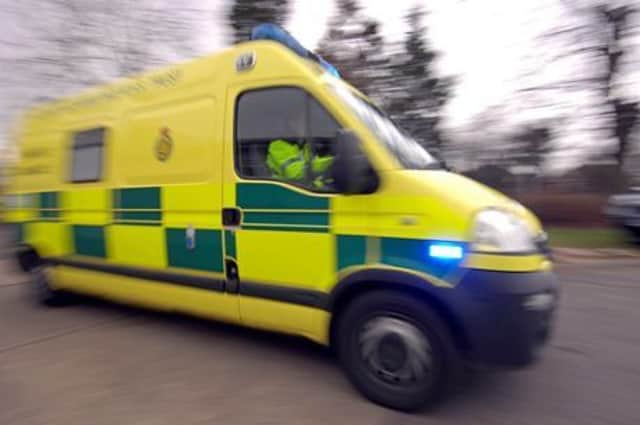VIDEO: Hottest day of the year proves busy for ambulance service


The service normally receives on average around 2,000 999 calls a day but yesterday, took around 3,000.
Types of calls included sunstroke, dehydration, heat exhaustion and breathing difficulties but there was also an increase in the number of road traffic collisions.
Advertisement
Hide AdAdvertisement
Hide AdWith demand continuing to increase, EMAS Medical Director Bob Winter is urging people to take responsibility for their health and wellbeing.
He said: “We want people to enjoy the weather, but to do so safely. Since yesterday we have taken around 48 calls for heat exposure and sunstroke, many of which could have been prevented.”
Top tips to help people enjoy the weather include:
• Stay hydrated by drinking plenty of water.
• Wear a sun hat and sunscreen to prevent burning or heat stroke.
• If you begin to feel unwell in the heat, take a sit down and rest inside and take a drink of water. If you still feel unwell after a time, you can get advice from your GP out of hours service, 111 or local pharmacy. To find your nearest services and seek advice on how to treat sunstroke you can search at www.nhs.uk.
Advertisement
Hide AdAdvertisement
Hide Ad• Last year EMAS responded to 175 calls reporting ‘drowning’ so parents and guardians should constantly supervise children and babies in paddling/swimming pools and don’t take the risk of swimming in dangerous waters ie rivers, lakes, ponds, or quarry water. Instead, cool down in your local leisure centre where swimming is supervised.
• If you’re planning a journey, consider the unexpected eg breakdown or delays due to a road traffic collision and make sure you take your regular medication and plenty of water with you. Try to schedule a rest stop on route so you can have a drink and something to eat.
Bob added: “Our colleagues and volunteers are working incredibly hard and we are proud of their continued commitment to provide the best possible care during this challenging time; many from all areas of the service working over their shift hours or coming in for extra shifts to help us give the best possible patient care.”